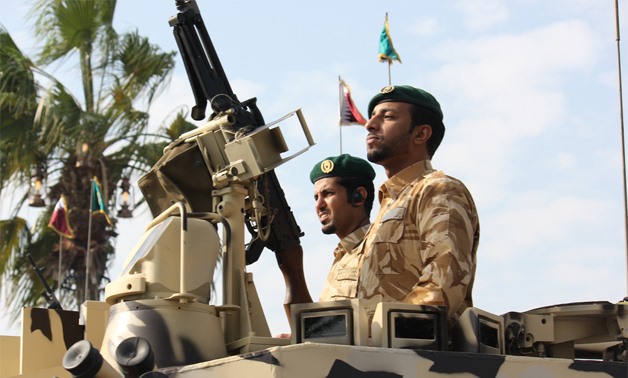
Qatar’s Military and Special Forces - Isabell Schulz / Flickr
CAIRO – 17 June 2017: Following Egypt’s and the Gulf States’ blockade on Qatar, criticism got louder of the Qatari army’s structure for being full of multiple nationalities, unlike other Arab and Middle Eastern military forces.
Qatar has been suffering from the lack of sufficient native manpower to staff its army. The Gulf country tended to rely on recruiting foreigners to join the military forces.
The sources disclosed, “The Qatari army now amounts to 11,800 personnel, with only 30% of them natives, while the rest are holding more than twenty nationalities.”
“Foreigners in the Qatari armed forces can reach the highest ranks and posts and work in all military branches, while Qataris are denied those positions and privileges,” the sources added.
“The army’s general command is appointed by the Qatari Emir Sheikh Tamim Al-Thani who grants them all privileges and high salaries,” the sources said.
They further noted that the ruling family has recently increased the nationalization of foreign residents to include them in the army.
“In February 2016, Doha opened the door for foreign communities residing on its territory to join army. Thousands of Doha’s residents of different nationalities flocked to the army, including Indian, Pakistani, Sudanese, Somali and Iranian expats,” according to the sources.
According to the sources, “hundreds of the Iranian Revolutionary Guards elements and Turkish soldiers arrived to the Qatari capital a few days ago to secure the royal family without any consideration for the security of citizens, and the national security of the Gulf region.”
Qatar’s relations with several Arab states have been strained since 24 May over leaked statement attributed to Sheikh Tamim criticizing Gulf foreign policy with Iran, describing it as “unwise.”
The Qatari crisis escalated when Egypt and a coalition of Arab states in the Gulf Cooperation Council (GCC) announced a coordinated diplomatic break with Qatar, including Saudi Arabia, the United Arab Emirates and Bahrain.
The Arab countries, in dispute with Qatar, accused the peninsular country of funding Islamist terrorists, in part via the Doha-based al-Jazeera satellite channel.

Comments
Leave a Comment